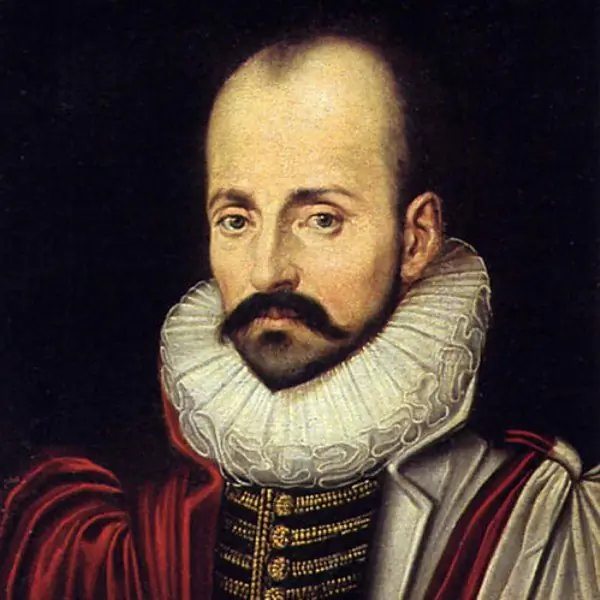- Author Antonio Harrison harrison@cultureoeuvre.com.
- Public 2023-12-16 07:44.
- Last modified 2025-01-22 21:44.
He was respected for his sharpness of mind and ability to see the essence of events. He knew how to smooth out contradictions, resolve social and religious conflicts. Michel Montaigne was not the author of sensational novels about social life. But his famous "Experiments" entered the treasury of world literature.

Montaigne: the life of a philosopher
Michel de Montaigne was born on February 28, 1533 in the family castle. Michel's father fought in the Italian Wars and was later mayor of Bordeaux. Mother came from a wealthy Jewish family. The father was directly involved in the upbringing of the boy. He used humanistic methods, although his French was poor. Communication with my son took place mainly in Latin. After receiving an excellent education at home, Michel graduated from college and pursued a career as a lawyer.
During the Huguenot Wars, Montaigne often acted as a mediator between conflicting parties. He was equally respected by Catholics and Protestants.
Being a direct participant in political events, Montaigne did not escape arrest. In July 1588 he was arrested by Catholics and even spent one day in the Bastille. The philosopher was released only after the intervention of Catherine de Medici. Two years later, Michel Montaigne turned down a flattering offer from Henry IV, who wanted to see the philosopher among his advisers.
Montaigne married in 1565, receiving a very substantial dowry. His father died three years later. Michel received the right to inherit and became the owner of the family castle.
Montaigne began writing his famous "Experiments" in 1572, when he was already 38 years old. The first two books of essays were published in 1580. It is interesting that the very word "experience" (in French "essay") came into use thanks to Montaigne.
After the publication of his works, Montaigne traveled across Europe for two years. The impressions of his trips to Germany, Switzerland, Austria and Italy were reflected in his diaries.
The French writer and philosopher passed away on September 13, 1592 during a religious ceremony.
"Experiments" by Michel Montaigne
In his books, called "Experiments", the writer shares his impressions and reflections. The books are written in the literary and philosophical genre. In the work of Montaigne, facts from his biography, observations of the mores of people, over their life and way of life were reflected. Dozens of people of all ages, cultural level and social status passed before the author's eyes. Montaigne used these impressions in the first place in the preparation of the Experiments.
Montaigne's writings are directed against medieval scholasticism and superstition, the cruelty of the authorities and the fanaticism of religious leaders. The author compares the modern civilization with a primitive society. "Experiments" are distinguished by subtle humor, truthfulness and sincerity in describing the phenomena of reality. Prudence is here intertwined with skepticism. But Montaigne wrote this work "out of nothing to do", without adhering to the plan of presentation, giving free rein to the convolutions of thought.






